Fisheries and Oceans Canada (DFO) has made a surprising move by discontinuing the participation of two at-sea observer companies in the monitoring program for the lucrative southwest Nova Scotia lobster fishery. This decision has taken one of the companies involved by surprise.
For the upcoming season, DFO will exclusively rely on an inshore industry association to evaluate bycatch, which refers to unintentionally captured species, in the lobster fishery stretching from Halifax through the Bay of Fundy. The observer companies in question, Javitech Atlantic in Dartmouth and Atlantic Catch Data in Halifax, have been integral to the bycatch monitoring program since its inception in 2018. This initiative aimed to assess and demonstrate sustainability in a fishery valued at half a billion dollars. However, both companies have now been excluded from the program.
In recent years, these companies have failed to meet the sampling standards set by the Yarmouth-based Southwest Lobster Science Society, established by five fishing associations to oversee bycatch monitoring. To participate in this pilot project, license holders in lobster fishing areas 33, 34, and 35 were required to join the Southwest Lobster Science Society or establish an agreement with an at-sea observer company.
DFO manager Verna Docherty informed the industry that the Southwest Lobster Science Society would be the "exclusive service provider for at-sea data collection in [lobster fishing areas] 33, 34, and 35 for the 2023/24 season."
Albert Moore, the general manager of Javitech Atlantic, admitted that the company had not reached its target coverage levels. He attributed this shortfall to COVID-19 restrictions and a shortage of labor. Moore expressed his dismay at the decision, emphasizing that his company was not consulted during the decision-making process.
Moore stated, "My only comment is that we were not part of this consultation process, we were not involved. We were informed after the fact and not directly by DFO. So at this point, we do not agree with the decision or accept it and we've asked for a meeting with DFO officials to get more information on this."
The Southwest Lobster Science Society was formed in response to DFO's request for better monitoring of cod, cusk, and other species inadvertently caught in lobster traps. In the previous season, the society's technicians were present for 275 trips, reporting data on 23,000 traps, marking their most successful season yet. However, they fell short of DFO's initial target to collect data from one percent of commercial fishing trips within each Lobster Fishing Area (LFA).
The DFO's assessment of the program acknowledged that although sampling targets were not met, the data collected was generally representative of the fishery in most lobster fishing areas. Using modeling based on this data, DFO estimated annual bycatch of cod as follows: 139 tonnes in LFA 33, 243 tonnes in LFA 34, and 7.7 tonnes in LFA 35. The assessment revealed that the society outperformed Javitech and Atlantic Catch Data by sampling more trips, more traps per trip, and identifying more species.
Notably, the Southwest Lobster Science Society does not report regulatory infractions, unlike observer companies, which is emphasized on its website. Colin Sproul, speaking on behalf of the society, highlighted the collaborative effort between the industry and scientists, stating that it consistently yields the best data.
Sproul said, "That's what the Southwest Lobster Science Society is really all about — hard data for scientists to work with that reveals the good and the bad about the lobster fishery. Members are happy to be involved in the collecting of the data."
The society charges its members $300 per year, and its data suggests that the fishery has a minimal impact on other species. Sproul emphasized, "The vast majority of bycatch consists of juvenile and berried lobster that are released back to the bottom. There are small incidences of bycatch of other species which are important to note, and that's the point of the Southwest Lobster Society is that we can assess the industry in all its parts — whether it be good or bad — and help regulators make better management decisions to keep us sustainable into the future."
DFO, in a statement to CBC, defended its decision by stating that the non-profit society had done a superior job. Spokesperson Debbie Buott-Matheson explained, "The Southwest Lobster Science Society is the only at-sea observer provider serving [lobster fishing areas] 33, 34, and 35 that has demonstrated an ability to meet the increasing need for reliable fisheries data in the inshore lobster fishery and has provided the majority of data in recent years."
According to Buott-Matheson, this decision will ensure the availability of necessary at-sea data while allowing other observer companies to focus on different fisheries.
Source: Paul W. (September 22, 2023). Observer companies dumped from monitoring accidental catch in N.S. lobster fishery. CBC News. https://www.cbc.ca/news/canada/nova-scotia/observer-companies-nova-scotia-lobster-fishery-1.6974641



